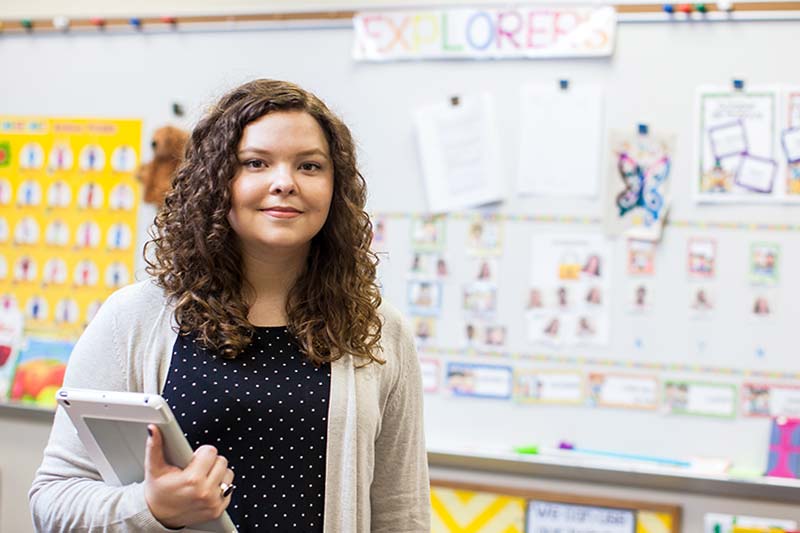
Turning her challenges into incentives for action and change, Madison Burton, ’18, has adapted to difficulties in her life in order to discover her calling. And she has made a powerful impact during her four years at Meredith College.
After graduation, Madison will attend the University of North Carolina at Greensboro, where she will earn the necessary prerequisites to pursue a master’s degree in speech and language pathology with a specialization in pediatrics and Autism Spectrum Disorder.
Her roles as a double major in psychology and child development, a Presidential Scholar, an Honors student, and vice president of Omicron Kappa Nu honor society developed her passion for educating and serving both the Meredith and Raleigh communities.
Madison’s goals and achievements were shaped by her challenges. “Life has thrown me a lot of curveballs, and I think the ability to take them as they come has been an opportunity to grow and improve myself,” Madison said. One of her greatest challenges occurred when some of her family members were diagnosed with autism.
“While that was a very difficult time for my family, I saw an opportunity to learn more about autism and how to help people,” said Madison.
As Madison entered college, she began to ask questions and explore possibilities to help others. For the past four years she has worked with the Meredith Autism Program (MAP) and has become a registered behavior technician, which has helped her to discover her future focus.
“[MAP] provides perspective for what it’s going to be like in the clinical field. We get to practice those skills in the field and see the improvement in children’s lives over a period of time,” Madison said.
Support from faculty members, specifically Lyn Aubrecht, professor of psychology, and Kathryn Clark, professor of human environmental sciences and coordinator of the child development program, has been crucial to Madison’s success.
“My research with Dr. Aubrecht was formative in my time at Meredith; I researched synesthesia as an aid to visual learning,” Madison said. “My work inspired me because, as someone with color-grapheme synesthesia, it was encouraging to contribute to the body of knowledge on a topic that is still relatively unexplored.”
Since the day Madison left Franklinville, N.C., to come to Meredith, she has felt welcomed just as she is: “I came in with a lack of confidence in myself, and I defined myself a lot by doing the right things and pleasing the right people. By coming to Meredith I’ve really gotten a good look at myself and what I want for my life,” Madison said.
The women’s college aspect of Meredith has empowered Madison as she enters higher education: “I didn’t know how I would feel about a women’s college at first, and I was honestly a little nervous, but since being here I wouldn’t have it any other way,” Madison said. “If anything, Meredith encouraged me to find my own voice and confidence in myself, and that confidence will carry over wherever I go.”
By Abigail Ojeda, ’19
Learn more about studying psychology and child development at Meredith.
Explore Meredith’s Honors and undergraduate research programs
PRINCETON REVIEW
U.S. NEWS
NICHE
3800 Hillsborough Street Raleigh, NC 27607-5298 | (919) 760-8600 Fax: (919) 760-8330 | © 2024 All Rights Reserved.